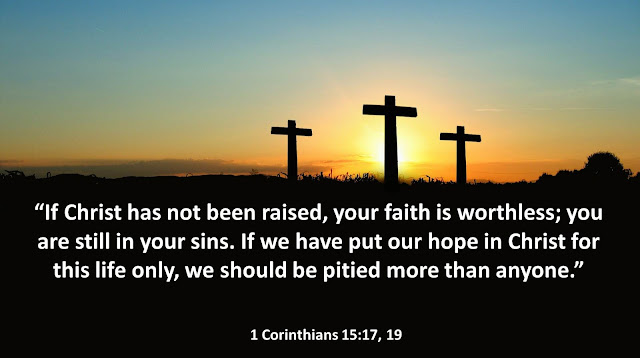Introduction
Is biblical faith blind or reasonable? This is one of the most hotly debated questions between believers and unbelievers. While most who say that faith is blind are unbelievers, I have also heard many Christians claim this as well. The claim is that faith and reason are at odds with one another, and that the more evidence or reason that you have to believe something, the less faith that you need.
Is Faith Blind or Evidential?
In his book "
Forensic Faith: A Homicide Detective Makes The Case For A More Reasonable Evidential Faith,"
J. Warner Wallace emphasizes the evidential nature of Jesus' ministry on earth. Jesus never asked people to believe His claims without a good reason to: the miracles that He performed. He performed miracles to demonstrate that His claims to be God (such as is found in His claim to be able to forgive sins in Matthew 9). Based on His followers' witnessing His miracles (eyewitness evidence), He asked them to have faith in Him. This was not a request for blind faith, but an evidentially-based faith.
In the book, Wallace not only appeals to the entire ministry of Christ on earth but also to specific passages of Scripture where Jesus explicitly identifies this specific purpose for His miracles and where other New Testament authors also encouraged their readers to test claims:
John 10:25- "'I did tell you and you don't believe,' Jesus answered them. 'The works that I do in My Father's name testify about Me.'"
John 10:37-38- "If I am not doing My Father's works, don't believe Me. But if I am doing them and you don't believe Me, believe the works."
Acts 1:3- "After He had suffered, He also prested Himself alive to them by many convincing proofs, appearing to them during 40 days and speaking about the kingdom of God."
1 Thessalonians 5:19-21- "Don't stifle the Spirit. Don't despise prophecies, but test all things. Hold on to what is good."
1 John 4:1- "Dear friends, do not believe every spirit, but test the spirits to determine if they are from God, because many false prophets have gone out into the world."
These passages do not ask for someone to believe just anything based simply on the word of the person making the claim ("...because I said!"- a blind faith) but based on the actions of the person making the claim. Notice, too, that in the 1 Thessalonians and 1 John passages, the authors are so confident that the claims will pass evidential tests that
they openly invite testing! None of these passages ask for blind faith; in fact, they encourage the exact opposite: a faith that is
not blind rather a faith that is grounded in evidence and reason.
A Biblical Faith And The Resurrection
Biblical faith, correctly understood from Scripture, is not blind; it is tested and firmly grounded. In fact, today, we can test the central claim of Christianity: that Jesus rose bodily from the dead (1 Corinthians 15). As we investigate the evidence, based on tried and true investigative methods (as outlined in
J. Warner Wallace's book "
Cold-Case Christianity") and historiographical methods (as outlined in
Gary Habermas' books "
The Historical Jesus" and "
The Risen Jesus and Future Hope"), we discover that the only explanation that consistently explains
all the evidence is that Jesus rose from the grave, as is claimed in the gospels.
Conclusion
Because this central claim passes the evidential test, a faith in Christ is not blind or because "the Bible tells me so;" it is firmly grounded in proven methods used for discovering the truth of claimed events of the past. There simply is no reasonable reason to reject the Resurrection. While we certainly are free to reject the conclusion of the evidence and arguments, we should not fool ourselves into believing that the rejection is anything more than an emotional leap of blind faith
despite evidence to the contrary.
Follow Faithful Thinkers On Social Media
To Investigate Further, See the Links Throughout This Post And These Additional Ones:




